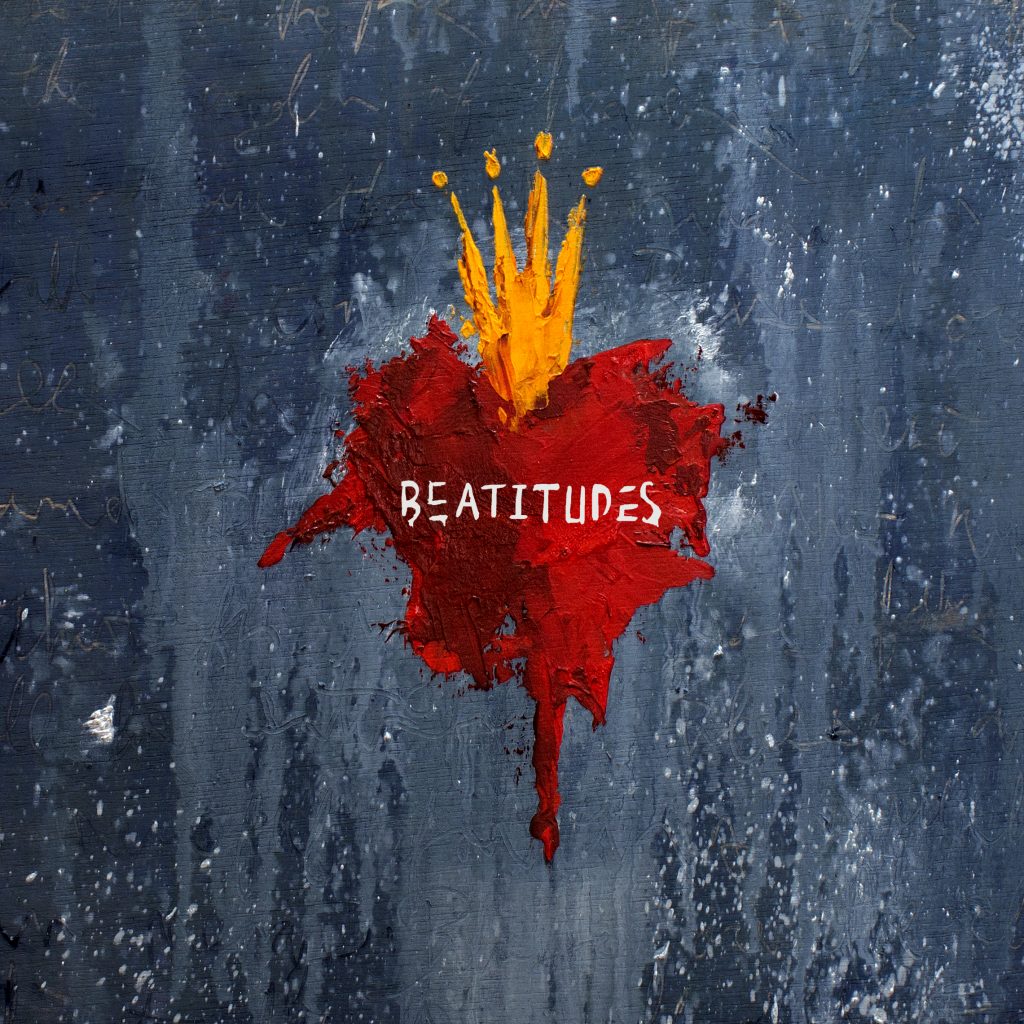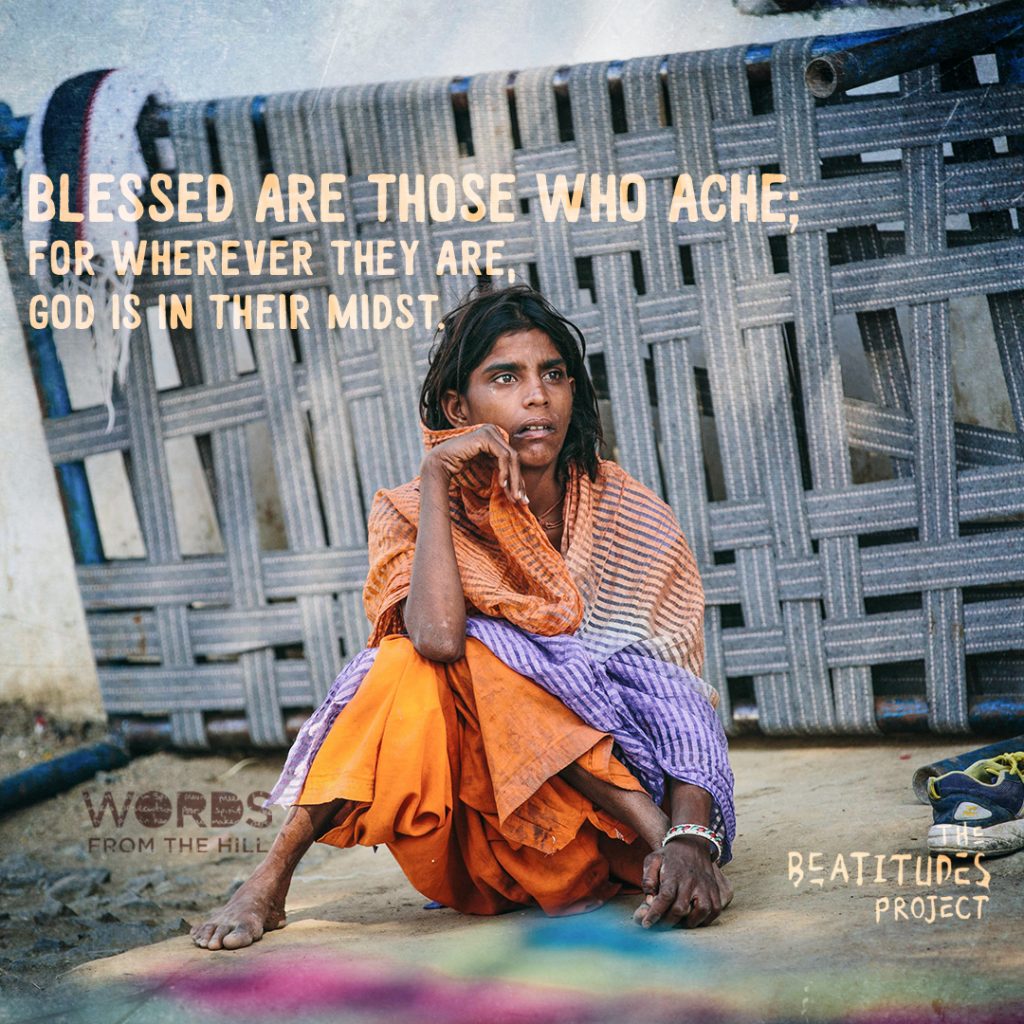Who gets the earth?
Because that is the question on all of our lips, right?
I think we all know who gets the earth!
the successful, the strong, the brutal, the bullies
those who climb their way to the top
those with the most Facebook friends
those with the most Apple products (I have four)
those whose frequent flyer card says “Executive Platinum” (mine says “Platinum” . . . boo!)
And then my guess is, if you’ve grown up like me, you have something like this as an understanding of what meek means:
the humble
the wallflowers
those who don’t correct you when you say their name wrong
those who don’t fight for their place in line when someone pushes in front
those who stand by and watch others get ahead,
those who get walked on . . . the doormats.
the “sat upon, spat upon, ratted on”
The “little people” don’t inherit the earth. The big, aggressive ones do.
I have to admit I’ve got power problems. You might not notice them at first, because they are well camouflaged, but they’re there, tucked away, ready to pounce and grab when anything I want comes my way.

I remember back in the day whenever a generous manufacturer would send us boys in Delirious? a box of free goodies—designer T-shirts and sunglasses, some kind of free swag that could make me look cool. There was always that irritating urge to get to the box first, and if I didn’t, I had that terrible feeling of missing out on the best piece.
I hate that feeling of being left out or passed over. I’ve had to battle that feeling of entitlement. My gut reaction is to want to get to the front first, stick a flag in the ground, and stake my claim.
So who are the meek?
Maybe we should look around the hillside that day Jesus taught the Beatitudes. He didn’t announce these things for the benefit of people who weren’t there. He was speaking to the very people who needed to hear what he had to say.

And there was quite a crowd. Jesus had been going out and getting among the people where they lived, teaching the truth of God’s Kingdom, and healing peoples’ bodies and minds—and these people followed him. The niv says that “large crowds” came from Galilee (a very Jewish area where Jesus grew up), the Ten Towns or Decapolis (a Greek area settled by Alexander the Great), Jerusalem, Judea, and the region across the Jordan.
Matthew is showing us that the people following Jesus were from all over the region, all the points of the compass. It was a ragtag jumble of people and culture.
Jesus’ message is that all are included. Even the ones outside of our religion and prejudices. All these people whose lives had been touched by this traveling teacher, living proof that once you’ve experienced love and hope and mercy, it’s hard to stay away.
Love, hope, and mercy were a rare commodity in a land occupied by the Roman superpower that was in charge from England to Asia Minor. These people had lost their homes and land and families. They were broken and trampled upon. The middle classes had disappeared because of high taxes, and all that were left were the very rich (the colluders) or the very poor (everyone else).
These are Matthew’s meek, his “little people”:
those who are overpowered and oppressed.
those who are bullied and marginalized.
those who have lost the power of choice and opportunity.
those who are born into the “wrong” family or religious community.
those who are seen as “the other” or “the outsider.”
This meek beatitude is for those in awful situations who lack the power to do anything about it. This is about a poverty of power and choice. It’s about the ones who, with great humility, hear and accept the invitation to find a way to carry on in the most awful, difficult, and dire circumstances.
The invitation to carry on comes from a man who came not to overthrow with violence and revenge and entitlement, but to lead the way in nonviolence. Showing us how to love our enemies. Healing our bodies and minds. It’s a hard, countercultural, upside-down message to hear.
And who are the meek today? They are in our towns and cities, but they remain unnoticed and will stay unseen unless we take the time to look and be present, become friends and share our lives. The meek are those whose presence is constantly denied or ignored. They are not just powerless. For them, power has never been an option.

Many teachers who are far cleverer and more scholarly than I have said that meek means controlled strength. Some give the example of a wild horse that has been broken in and tamed. This beautiful beast still has wild strength, but its master can control it. But when I hear this explanation, all I can think is that once there was a beautiful wild animal, strong and free, and now it’s not free at all. To me, an example of strength under control is Martin Luther King Jr., who gave his very life, his last bit of strength, seeking equality and justice for all. He remained strong and dignified in the face of racism and persecution and lived his message of peace and nonviolence until the end.
Being meek is not something we do. It’s something we are—and often because it is forced upon us when we are oppressed, bullied, and marginalized, when the power of choice and opportunity and resources have been taken away, when our very presence is ignored and, if people see us at all, we are seen as the other and “less than.”
And even in this, divine presence is offered, and God invites us to carry on, to be strong and still be open to what this life has to offer—because God is on our side.
Continue reading Words from the Hill: An Invitation to the Unexpected by Stu Garrard. Explore the beatitudes with Words from the Hill and the larger Beatitudes Project. The project also includes an album and documentary film.

